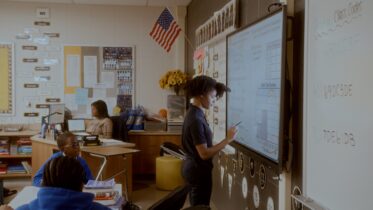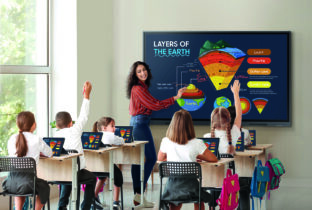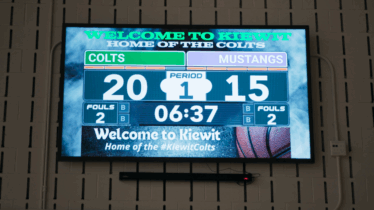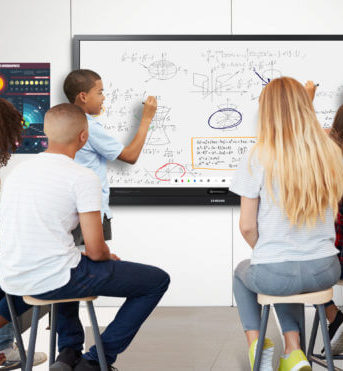As a former teacher and technology director, Steven Anderson has seen firsthand how technology used in a literacy lab can help personalize instruction for students by allowing teachers to target their students’ specific literacy needs.
But Anderson, who is now an author and ed-tech consultant, cautions that technology must be used in the right way to be effective.
“We have to be careful, too,” he says. “Programs that say they improve literacy yet only have students recalling low-level facts can drive the love of reading out of students. I’ve seen that all too often.”
Engaging Reluctant Readers
That’s not something educators have to worry about with iLit, a suite of literacy programs from Pearson spanning grades 3–12.
With iLit, students have access to a “vast and growing” digital library of more than 3,000 full-text books, including classics, that are targeted to their interests and reading level, says Doug McCollum, senior vice president of accelerated performance solutions for Pearson.
Students take an initial diagnostic test that measures their reading ability, and they indicate the topics that interest them. The system then delivers recommended books for them to read. The software’s recommendation engine also factors in the ratings students give the books they’ve read, similar to how Netflix suggests movie titles to its customers.
“Everyone has different areas of interest, and this matches students with their specific interests,” says McCollum. He notes that this leads to much higher engagement in reading, even transforming the habits of reluctant readers.
Supporting Struggling Students
iLit includes a number of support features to help struggling readers and those who are still learning English, such as translations in 45 different languages, a picture dictionary and the ability to have the text read aloud. There are also lessons that teach students close reading strategies, as well as questions and writing prompts that encourage deeper reflection.
The software comes in four versions. iLit 90 combines whole class, small group and independent reading instruction, and is intended for classrooms that can spare 90 minutes per day on literacy intervention. iLit 45 is a shorter version for classrooms with a single literacy period. iLit ELL contains additional scaffolding for English language learners, and iLit 20 is a self-paced, supplemental version of the program.
All four versions seamlessly integrate formative assessment and instruction. The software is “continually gathering data on performance and making adjustments on the fly to give students exactly what they need to improve,” McCollum says — and it also helps teachers group students appropriately and plan their instruction.
Samsung Literacy Lab
Samsung has partnered with Pearson to offer a complete literacy solution called the Samsung Literacy Lab, which bundles Pearson’s iLit software with Samsung Chromebooks or Galaxy tablets. The solution also contains a full day of professional development to make sure the software is integrated into reading instruction effectively.
Four Cleveland schools piloted the Samsung Literacy Lab this past school year using Galaxy tablets preloaded with iLit 90 and iLit 45 software. While formal results are still being compiled, McCollum describes the pilot as a huge success. Other independent research has shown that students can achieve more than two years’ growth in reading skills in just a single school year by using iLit.
“When you bring together appropriate student devices with curriculum, formative assessment and professional development, it’s really effective,” McCollum says. “You need all of these elements for success, and that’s what we’re able to offer with this solution.”
Steven Anderson and Doug McCollum will be panelists in a session about using technology to improve literacy at ISTE 2016. The session, titled “Leveraging Technology to Improve Literacy Rates for Struggling Readers,” will be held Tuesday, June 28, from 10:45 to 11:45 a.m. in Room 401 of the Colorado Convention Center in Denver. Produced by the International Society for Technology in Education, ISTE 2016 is the nation’s largest ed-tech conference.







